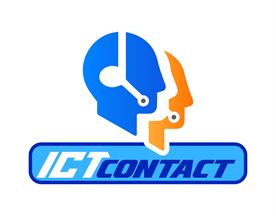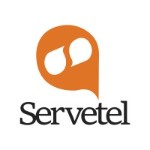What are call center solutions for small businesses? Call center solutions for small businesses include VoIP, CRM software, and automated tools to enhance customer service and operational efficiency.
Call center solutions for small businesses are a crucial component of any business that deals with high volumes of customer inquiries. While larger companies have long utilized these tools to improve customer service, small businesses have been slower to adopt them due to perceived cost and complexity. However, with the rise of cloud-based software and other technological advancements, call center solutions for small businesses are now more accessible than ever.

Understanding call center solutions for small businesses is the first step in evaluating whether they are a good fit. Essentially, call center solutions for small businesses are software and hardware tools that enable businesses to manage customer inquiries across multiple channels, such as phone, email, and social media. These tools can help businesses streamline their customer service operations, improve response times, and provide a more consistent customer experience.
Key features of call center solutions for small businesses include automatic call distribution, interactive voice response, call recording, and analytics and reporting. These features can help businesses manage call volume, route calls to the appropriate agents, and track key metrics such as call duration and customer satisfaction. By utilizing these tools, small businesses can improve their customer service operations and compete with larger companies.
Key Takeaways
- Call center solutions for small businesses are now more accessible than ever.
- Call center solutions for small businesses manage customer inquiries across multiple channels and provide a more consistent customer experience.
- Key features of call center solutions for small businesses include automatic call distribution, interactive voice response, call recording, and analytics and reporting.
Understanding Call Center Solutions
Defining Call Center and Contact Center
A call center is a centralized facility that is responsible for receiving and transmitting a large volume of telephone inquiries. The main objective of a call center is to provide efficient customer service and support. On the other hand, a contact center is a more advanced version of a call center that also includes other communication channels such as email, chat, and social media.
Call centers and contact centers are essential for small businesses that want to provide excellent customer service. They help businesses manage customer inquiries and concerns more efficiently, which in turn leads to better customer satisfaction.
Core Benefits of Call Center Software for Small Businesses
Call center software offers several benefits for small businesses. Some of the core benefits include:
Improved customer service: Call center software enables small businesses to provide better customer service by streamlining communication channels and providing quick responses to customer inquiries.
Increased efficiency: Call center software helps small businesses manage customer inquiries more efficiently by automating certain tasks such as call routing and call logging.
Cost savings: Call center software helps small businesses save money by reducing the need for additional staff and equipment.
Better data management: Call center software provides small businesses with better data management capabilities, enabling them to track customer interactions and identify areas for improvement.
Overall, call center solutions for small businesses are an essential tool to provide excellent customer service and support. By implementing call center software, small businesses can improve their efficiency, reduce costs, and provide better customer experiences.
To learn more about call center solutions for small businesses, check out this resource with high authority on the topic.
Key Features of Call Center Solutions For Small Businesses

Call center solutions for small businesses are a crucial tool to provide excellent customer service. These solutions offer a range of features that allow businesses to efficiently manage incoming calls, route them to the right agents, and provide customers with the information they need. In this section, we’ll explore some of the key features of call center solutions for small businesses and how they can benefit them.
Call Routing and Queuing
Call routing and queuing are essential features of call center solutions. They ensure that incoming calls are directed to the right agents, based on factors such as the caller’s location, language, or previous interactions with the business. Call queuing allows businesses to manage high call volumes by placing callers in a queue until an agent is available to take their call. This feature ensures that customers don’t have to wait on hold for long periods, which can lead to frustration and dissatisfaction.
Interactive Voice Response (IVR)
Interactive Voice Response (IVR) is a feature that allows callers to interact with an automated system using their voice or touch-tone keypad. IVR systems can provide callers with information about the business, such as operating hours or directions to the nearest location. They can also help route calls to the right department or agent, based on the caller’s input. IVR systems are an excellent way for small businesses to provide 24/7 customer service without having to hire additional staff.
Call Recording and Monitoring
Call recording and monitoring are essential features for businesses that want to ensure quality customer service. Call recording allows businesses to review calls for training purposes or to resolve disputes with customers. Call monitoring allows managers to listen in on live calls and provide feedback to agents in real-time. These features ensure that agents are providing accurate information and excellent service to customers.
Analytics and Reporting
Analytics and reporting are critical features for businesses that want to track their call center performance. These features allow businesses to monitor call volumes, wait times, and other metrics to identify areas for improvement. They can also help businesses identify trends in customer behavior and adjust their strategies accordingly.
Omnichannel Communications
Omnichannel communications are becoming increasingly important in today’s business landscape. This feature allows businesses to communicate with customers through multiple channels, such as email, social media, or live chat. Omnichannel communications ensure that customers can reach businesses through their preferred method of communication, which can improve customer satisfaction and loyalty.
CRM Integration
CRM integration is a crucial feature for businesses that want to provide personalized customer service. This feature allows call center agents to access customer information from the business’s CRM system, such as purchase history or previous interactions. This information can help agents provide more personalized service and improve the overall customer experience.
In conclusion, call center solutions for small businesses offer a range of features that can benefit small businesses. From call routing and queuing to CRM integration, these features can help businesses provide excellent customer service and improve their overall performance. To learn more about call center solutions, check out this resource.
Evaluating Call Center Software Providers
When it comes to choosing the right call center software provider for your small business, there are a number of factors to consider. From the features and functionality of the software to the cost-effectiveness and pricing models, it’s important to evaluate each provider carefully before making a decision.
Top Call Center Solutions for Small Businesses
There are many call center software providers on the market, but not all of them are suitable for small businesses. Some of the top call center solutions for small businesses include:
Freshcaller: This cloud-based call center software for small businesses. It offers a range of features, including call routing, IVR, and call recording, and is priced affordably.
Talkdesk: Talkdesk is another cloud-based call center solutions for small businesses. It offers features such as call routing, IVR, and call recording, as well as advanced analytics and reporting.
Zendesk: While not specifically designed for call centers, Zendesk is a popular customer service software that can be used to manage calls and other customer interactions. It offers a range of features, including call routing and IVR, and is priced competitively.
Cost-Effectiveness and Pricing Models
When evaluating call center software providers, cost-effectiveness is an important factor to consider. Some providers offer pricing models that are more suitable for small businesses than others. Some of the most common pricing models include:
Per user, per month: This pricing model charges a fixed fee per user, per month. It is often the most cost-effective option for small businesses.
Per minute: This pricing model charges a fee per minute of call time. While it can be more expensive than a per user, per month model, it can be a good option for businesses with low call volumes.
Per call: This pricing model charges a fee per call. It is often the most expensive option, but can be suitable for businesses with very low call volumes.
When evaluating call center software providers, it’s important to consider both the features and functionality of the software as well as the cost-effectiveness and pricing models. By carefully evaluating each provider, small businesses can choose the right call center software to meet their needs.
Here is a link to an external resource that provides more information on the best call center software for small businesses.
Implementing Call Center Solutions

When it comes to implementing call center solutions for small businesses, there are a few key factors to consider. These include onboarding and training agents, integrating with existing systems, and scalability and growth.
Onboarding and Training Agents
One of the most important aspects of implementing call center solutions for small businesses is ensuring that agents are properly onboarded and trained. This includes providing them with the necessary tools and resources to effectively handle customer inquiries, as well as ongoing training and support to help them improve their skills and knowledge.
To facilitate this process, small businesses may want to consider using a learning management system (LMS) to deliver training materials and track agent progress. Additionally, providing agents with access to a knowledge base or FAQ can help them quickly find answers to common customer questions.
Integrating with Existing Systems
Another key consideration when implementing call center solutions is integrating with existing systems. This can include customer relationship management (CRM) software, ticketing systems, and other tools that are already in place.
By integrating with these systems, small businesses can streamline their operations and provide a more seamless customer experience. For example, integrating with a CRM can allow agents to view customer history and previous interactions, enabling them to provide more personalized support.
Scalability and Growth
Finally, you should consider scalability and growth when implementing call center solutions for small businesses. As the business grows, it’s important to have a solution that can scale to meet increasing demand.
Cloud-based call center solutions for small businesses can be particularly effective in this regard, as they offer the flexibility and scalability needed to support growth. Additionally, small businesses may want to consider outsourcing their call center operations to a third-party provider, which can help them scale more quickly and efficiently.
Overall, implementing call center solutions for small businesses requires careful planning and consideration of a range of factors. By focusing on onboarding and training agents, integrating with existing systems, and scalability and growth, small businesses can create a call center that delivers an exceptional customer experience. For more information on call center solutions for small businesses, check out this resource.
Leveraging AI in Call Centers

Small businesses can benefit from leveraging artificial intelligence (AI) in their call centers. AI-powered features can automate routine tasks, provide valuable customer insights, and improve call routing, resulting in increased efficiency and customer satisfaction.
AI-Powered Features and Automation
AI-powered features such as chatbots and virtual assistants can automate routine tasks, freeing up call center agents to focus on more complex customer issues. Chatbots can provide customers with quick answers to frequently asked questions, while virtual assistants can guide customers through more complicated processes. AI-powered automation can also help reduce call times and wait times, resulting in a more efficient call center.
Sentiment Analysis and Customer Insights
AI-powered sentiment analysis can help call center agents better understand customer emotions and needs. By analyzing customer interactions, sentiment analysis can provide valuable insights into customer satisfaction and identify areas for improvement. This can help call center agents tailor their responses to better meet customer needs, resulting in a more positive customer experience.
Artificial Intelligence for Call Routing
AI-powered call routing can help ensure that customers are connected with the right agent quickly and efficiently. By analyzing customer data and call history, AI can route calls to the most appropriate agent, reducing wait times and improving customer satisfaction. AI-powered call routing can also help identify potential issues before they arise, allowing call center agents to proactively address customer needs.
Small businesses can benefit from AI-powered call center solutions. By leveraging AI-powered features and automation, sentiment analysis and customer insights, and artificial intelligence for call routing, small businesses can improve efficiency and customer satisfaction. To learn more about AI-powered call center solutions for small businesses, check out this article from Forbes.
Optimizing Agent Performance

In a call center, the performance of agents is crucial to the success of the business. Small businesses can optimize the performance of their agents by monitoring and assessing their workflows and providing them with the necessary training and support channels.
Monitoring and Assessing Agent Workflows
Small businesses can monitor and assess their agents’ workflows by using call center software that provides real-time data on agent performance. This data can help managers identify areas where agents need improvement and provide them with feedback and coaching.
Additionally, small businesses can use call recordings to review agent interactions with customers. This can help managers identify areas where agents need improvement in their communication skills, product knowledge, and problem-solving abilities.
Training and Support Channels
Small businesses can provide their agents with the necessary training and support channels to improve their performance. This can include online training modules, coaching sessions, and access to a knowledge base.
Moreover, small businesses can provide their agents with support channels such as chat, email, and phone support to help them resolve customer issues quickly and efficiently. This can help reduce the workload of agents and improve their overall performance.
In conclusion, optimizing agent performance is essential for small businesses to provide excellent customer service and increase customer satisfaction. By monitoring and assessing agent workflows and providing them with the necessary training and support channels, small businesses can improve their agents’ performance and achieve their business goals.
Here is a resource with more tips on how to improve call center performance.
Advanced Call Center Technologies
Small businesses can benefit greatly from advanced call center technologies that help improve customer service, increase efficiency, and reduce costs. In this section, we will explore some of the most innovative call center solutions for small businesses today.
Cloud-Based Call Center Platforms
Cloud-based call center platforms offer small businesses a flexible and cost-effective way to manage their customer interactions. With a cloud-based solution, businesses can easily scale their call center operations up or down as needed, without having to invest in expensive hardware or software.
One of the key advantages of cloud-based call center platforms is that they can be accessed from anywhere, at any time. This means that agents can work remotely, which can help businesses save on office space and other overhead costs. Additionally, cloud-based solutions often come with advanced features such as automatic call distribution, IVR, and call recording, which can help businesses improve their customer service and streamline their operations.
Real-Time Analytics and Decision Making
Real-time analytics and decision making tools can help small businesses gain valuable insights into their call center operations. By analyzing data in real-time, businesses can identify trends, spot potential issues, and make informed decisions about how to improve their customer service.
For example, real-time analytics tools can help businesses identify which agents are performing well and which ones may need additional training. They can also help businesses understand which products or services are most popular among customers, and which ones may need to be improved or discontinued.
Omnichannel Communication Strategies
Omnichannel communication strategies are becoming increasingly important in today’s fast-paced business environment. By using multiple channels to communicate with customers, businesses can provide a more personalized and seamless experience.
For example, a customer may start a conversation with a business via email, then switch to live chat or phone depending on their preference. By using an omnichannel communication strategy, businesses can ensure that the customer’s experience is consistent across all channels.
To implement an effective omnichannel communication strategy, businesses need to invest in the right tools and technologies. This may include a unified communications platform that integrates multiple channels, as well as analytics tools that can help businesses track customer interactions across all channels.
Overall, advanced call center technologies can help small businesses improve their customer service, increase efficiency, and reduce costs. By leveraging cloud-based platforms, real-time analytics, and omnichannel communication strategies, businesses can stay ahead of the competition and provide their customers with the best possible experience. For more information on call center solutions for small businesses, check out this link.
Customer Support and Service

Small businesses rely heavily on customer support and service to build customer loyalty and increase sales. Providing effective customer support and service can be challenging, but it is crucial for the success of any business. In this section, we will discuss how small businesses can handle support queries and complaints, and how technology can enhance customer support.
Handling Support Queries and Complaints
Small businesses need to have a clear and efficient process for handling support queries and complaints. Customers want their issues to be resolved quickly and efficiently, and a good support system can help businesses achieve that. Small businesses can adopt the following best practices to handle support queries and complaints effectively:
- Respond promptly: Customers expect a prompt response when they reach out to customer support. Small businesses should have a dedicated support team that can respond to queries and complaints quickly.
- Be empathetic: Customers appreciate when businesses show empathy towards their concerns. Small businesses should train their support team to be empathetic and understanding towards customers.
- Offer solutions: Customers want their issues to be resolved, and small businesses should offer solutions that can solve their problems. Businesses should have a comprehensive knowledge base that can help customers find answers to their queries.
Enhancing Customer Support with Technology
Technology can play a significant role in enhancing customer support for small businesses. Small businesses can leverage technology to streamline their support process, and provide customers with a better experience. Here are some ways small businesses can enhance customer support with technology:
- Use chatbots: Chatbots can help small businesses handle customer queries more efficiently. Chatbots can provide customers with instant responses, and they can also escalate complex queries to human agents.
- Implement a CRM system: A CRM system can help small businesses manage customer interactions more effectively. A CRM system can store customer data, and it can also help businesses track customer interactions and provide personalized support.
- Offer self-service options: Self-service options such as knowledge bases and FAQs can help customers find answers to their queries quickly. Small businesses should have a comprehensive knowledge base that can help customers find answers to their queries.
In conclusion, small businesses need to provide effective customer support and service to build customer loyalty and increase sales. Small businesses can adopt best practices to handle support queries and complaints effectively, and they can also leverage technology to enhance customer support. By providing excellent customer support and service, small businesses can differentiate themselves from their competitors and build a loyal customer base.
Here is a link to an external resource that provides best practices for customer service.
Frequently Asked Questions

What are the essential features to look for in call center software for small businesses?
Small businesses should look for call center software that offers essential features such as call routing, call recording, and real-time reporting. Additionally, features such as IVR (Interactive Voice Response) and CRM (Customer Relationship Management) integration can greatly improve the efficiency of call center operations. According to Business News Daily, small businesses should also consider cloud-based call center software for its affordability and flexibility.
How can a small business benefit from implementing a virtual call center?
Implementing a virtual call center can provide several benefits to small businesses, including cost savings, increased flexibility, and improved customer service. By using remote agents, small businesses can save on overhead costs such as office space and equipment. Additionally, virtual call centers allow for more flexible scheduling and can easily scale up or down as needed. According to Forbes, virtual call centers can also improve customer service by providing faster response times and personalized interactions.
What are the cost-effective call center service options for small businesses?
Small businesses have several cost-effective call center service options, including outsourcing to a third-party provider or using a cloud-based call center software. Outsourcing can provide cost savings by eliminating the need for in-house call center staff and equipment. Cloud-based call center software is also a cost-effective option, as it eliminates the need for expensive hardware and allows for easy scalability. According to Tech.co, small businesses should look for call center software providers that offer affordable pricing plans and flexible contract options.
How can a small business set up an efficient telemarketing campaign?
To set up an efficient telemarketing campaign, small businesses should first define their target audience and craft a compelling script. They should also invest in quality call lists and train their agents on effective sales techniques. According to HubSpot, small businesses should also track their metrics and continually refine their approach to improve results.
What strategies should small businesses use to attract and retain call center clients?
To attract and retain call center clients, small businesses should focus on providing excellent customer service and building strong relationships with their clients. They should also invest in training their agents to provide personalized and efficient service. According to Small Business Trends, small businesses should also offer incentives and rewards to their clients and continually seek feedback to improve their services.
What are the common challenges small businesses face when operating a call center and how can they be overcome?
Common challenges small businesses face when operating a call center include high turnover rates, low agent productivity, and difficulty managing call volumes. These challenges can be overcome by investing in agent training and development, implementing efficient call routing and management systems, and using data analytics to identify areas for improvement. According to Business.com, small businesses should also prioritize employee engagement and work-life balance to reduce turnover rates and improve agent productivity.















